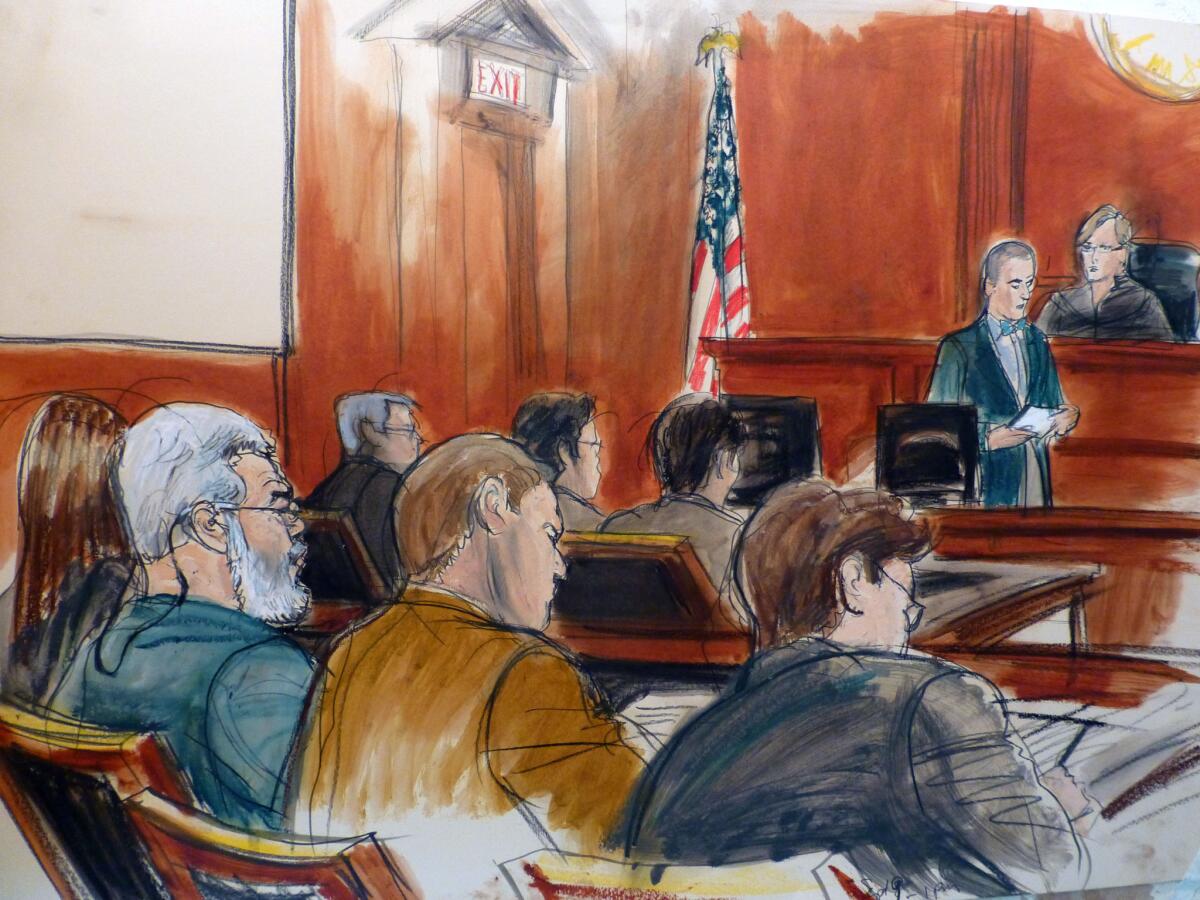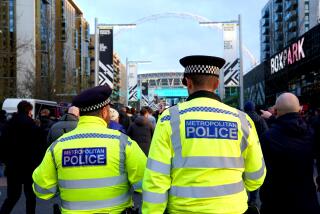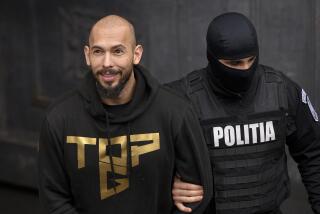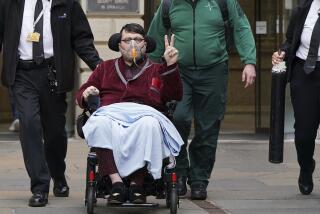Britain hails conviction of radical Muslim preacher in Manhattan

The British government Tuesday praised the terrorism conviction in New York of a radical Muslim cleric it spent a decade trying to expel to the U.S. for prosecution and vowed to prevent such drawn-out extraditions from happening again.
Abu Hamza Masri faces life in prison after being found guilty Monday by a Manhattan jury of 11 terrorism-related counts, including charges stemming from the deaths of four Western tourists kidnapped in Yemen and an attempt to set up a training camp in Oregon for would-be Afghan insurgents.
British Prime Minister David Cameron hailed the verdict, which came more than a year and a half after the 56-year-old preacher was sent from London to the United States at the end of a protracted legal battle.
“It’s good that he has faced justice and justice has been done,” Cameron said in a radio interview Tuesday.
But, he added, “we should reflect on whether we can extradite faster .... If someone threatens our country, we should be able to deport them if they have no right to be here, and that is absolutely essential that we restore that.”
Born in Egypt as Mustafa Kamel Mustafa, Masri had been a thorn in the side of British authorities for years before his extradition. He was naturalized as a British citizen but drew widespread condemnation in his adopted country for fiery sermons that lauded the Sept. 11, 2001, attacks, demanded the death of nonbelievers and called for the stoning of gay people. The North London mosque where he preached became a magnet for Islamic extremists.
In addition to his militant rhetoric, Masri was an instantly recognizable figure for his distinctive physical appearance. He has one eye and uses metal hooks in place of his hands, which he testified that he lost in Pakistan in an accident with liquid explosives.
In 2004, the U.S. launched extradition proceedings against him. Two years later, with that process still underway, Masri was sent to prison in London for inciting murder and racial hatred.
He appealed to Europe’s highest court to block his extradiction across the Atlantic, contending that he would face degrading and inhumane treatment in a so-called supermax prison in Colorado, where many terrorism convicts are serving time. But the court denied his appeal, heading off a diplomatic contretemps between the U.S. and Europe.
“He used every opportunity, over many years, to frustrate and delay the extradition process,” British Home Secretary Theresa May said, adding that she was pleased by Masri’s conviction.
Cameron said Britain would look for ways to speed up the appeals process in such cases.
During four days on the witness stand, Masri professed his love for Osama bin Laden and wept over the massacre of Muslims during the Balkan wars. His lawyers argued that Masri had worked with British authorities to defuse religious tension, not sow it.
The jury took less than a day to find him guilty. It was the second major terrorism-related conviction in a New York federal court in two months.
More to Read
Start your day right
Sign up for Essential California for news, features and recommendations from the L.A. Times and beyond in your inbox six days a week.
You may occasionally receive promotional content from the Los Angeles Times.







